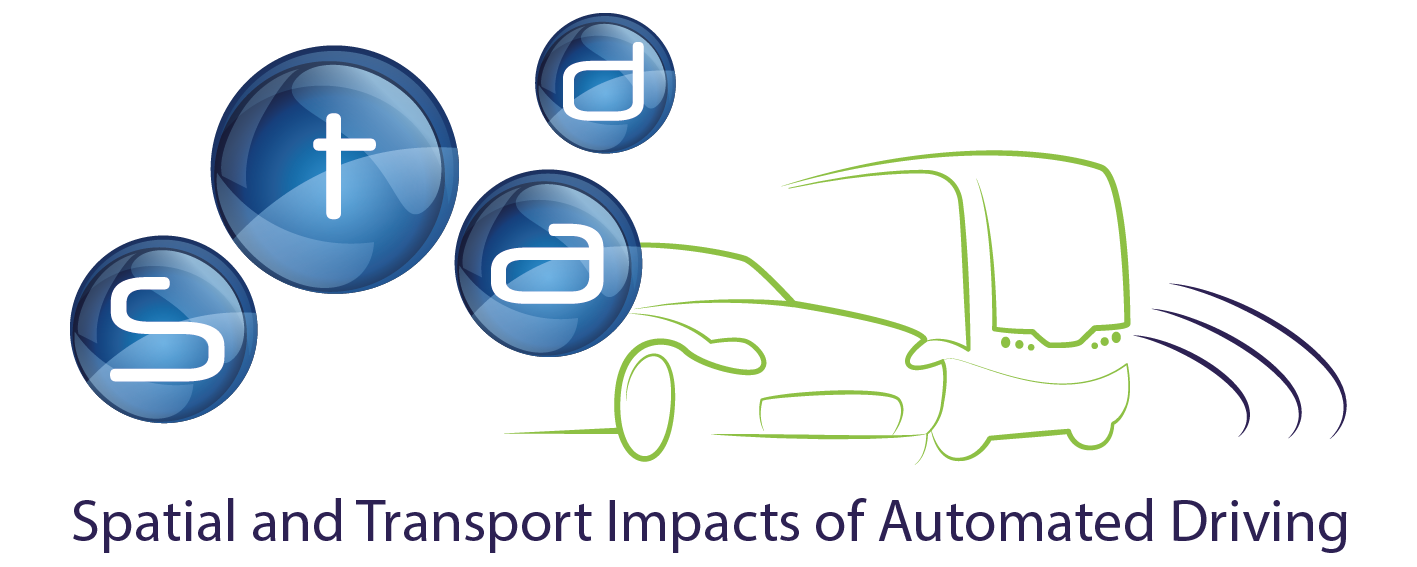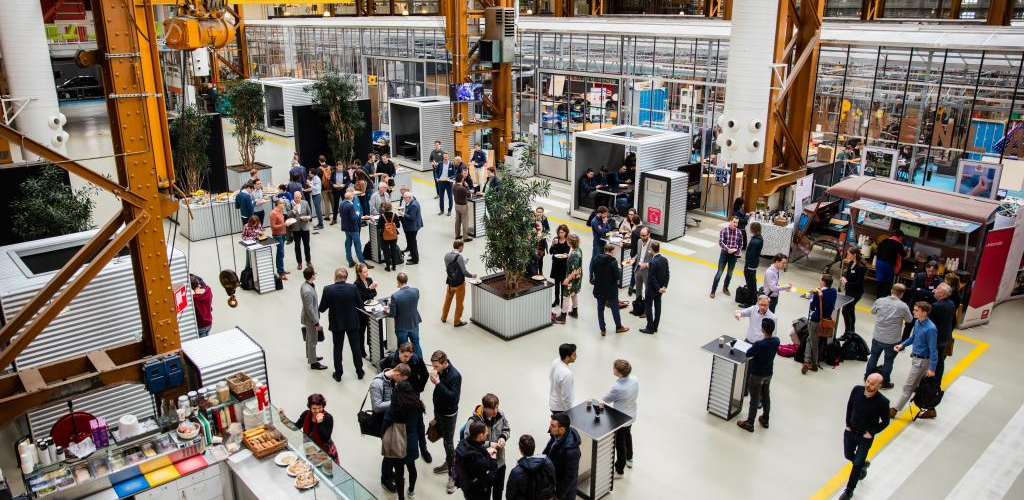Thank you all for joining the yearly open STAD event: “De zelfrijdende auto de baas” at the “Provinciehuis Gelderland” on May 10th 2019 in Arnhem. The event was open for everybody who wanted to learn more about the impacts of Automated Driving and the STAD project in particular.
The gedeputeerde Conny Bieze of Gelderland welcomed us and told us about the I-AT project Gelderland is working on ‘I-AT – Interregional Automated Transport’. Bart van Arem told us about initiatives from STAD partners in the field of Automated Driving like the project “Smart cars and future proof provincial roads”, “LVMB Research Questions Future Infrastructure” and “the new plans of 2getthere”. Our Keynote speaker “Walther Ploos van Amstel” gave a very good overview of the possible applications of Automated Driving in city logistics. The rest of the afternoon we had different parallel workshop sessions.
Parallel sessions:
- Baiba Pudane (TU Delft) with Luc Wismans and Kobus Zantema (Goudappel Coffeng)
The ability to engage in non-driving activities during travel in an automated vehicle may not only make the trip more or less pleasant, but may also change our preferences for departure times. Imagine, for example: if it is feasible and allowed to perform first work tasks of a working day in an AV, why not depart to work later and spend more time at home? Changed departure time preferences link directly to changed congestion patterns. This workshop presented the newest research and research plans on potential changes in congestion patterns with AVs, provides a space to discuss these behavioural impacts, as well as allows imagining our own morning commute in the future AV-era through an interactive exercise. - Anirudh Bhoopalam (RSM) with Roy van den Berg (RSM, SmartPart)
In this interactive workshop, the audience was put in a truck driver’s shoes and was asked to think along about how platooning would affect your job, and the industry you’re working in. We could potentially identify if some drawbacks of platooning exist since haven’t received as much attention as the benefits. Such exploratory research on the truck driver in platooning has been absent thus far. - Bahman Madadi (TU Delft) with Thijs Dekker (Provincie Noord-Holland)
The purpose of the workshop was to demonstrate to the audience how automated vehicles can be accommodated in urban regions. We discussed different philosophies and possible visions for the automated future cities, and considered their societal impacts, their shortcomings, their constraints and their expenses for cities. This was an interactive workshop where the participants were asked to choose their vision, show a simple implementation prototype via a game we have designed, and discuss its societal impacts and constraints with the rest. - Pablo Nuñez Velasco (TU Delft) with Rob Eenink (SWOV)
Our workshop aimed to provide you with the latest findings on the interactions between vulnerable road users and automated vehicles. We talked about how our experiments and analyses have led to these findings. During the workshop did discuss how these results could be employed by the audience. - Francis Ostermeijer (VU Amsterdam)
In our workshop we did consider the implications of AVs for parking in cities. We did discuss the demand side (prices, car demand, alternatives), supply side (pubic/private parking infrastructure) and potential policy interventions (e.g. removing parking spots). The workshop aimed to briefly distill research findings from academia in an accessible way. We spend the majority of our time outlining the goals of parking policy together and brainstorming how cities can best respond to changes in parking demand to meet these objectives. - Jeroen van der Gun (TU Delft) with Han Zwijnenberg (Goudappel Coffeng)
This workshop was about the strategic network modelling of the impacts of automated driving. In this workshop, first an overview was provided of the quasi-dynamic traffic assignment model, including its specific features for modelling impacts of automated driving. Following this, we did form small groups to develop specifications of future scenarios with automated driving that would be relevant to analyse with the presented model. As a member of the audience, the workshop was an opportunity to both learn more about the model under development and to have an impact on how the model will be used. - Province of Gelderland
Goal of the Dutch-German project ‘I-AT – Interregional Automated Transport’ is the development of technical innovations and solutions in the field of automated vehicles and transport in order to increase know-how and competence of the involved partners and the eu-region on this matter. Therefore a consortium of more than 20 partners are collaborating in this EU-subsidized Interreg project: SME and research institutions, big companies as well as public institutions along the German (NRW) – Dutch border area. Essential issues and activities within I-AT are
– to develop prototypes,
– to conduct and evaluate test series known as “Living Labs” in the border region (Airport Weeze, Aachen-Vaals, Ede) concering technical, socio-economical, ethical and legal aspects, and
– to accelerate the transfer of knowledge and the product innovation in the border region.
In addition, within the cross-border context especially legal question have to be considered as legislation still differs across the borders and this aspects has been scarcely analysed in practical test series like within I-AT. During the realisation of I-AT the partners take care of these issues and support and strengthen the business development of automatic transportation within the common cross-border region. Therefore I-AT also offers the possibility to other SME, projects and research organisations to exchange experience and together broaden the cross-border network. Within this session we will inform you about the activities and results so far and how to get in contact with this cross-border co-operation.
About STAD:
The Spatial and Transport Impacts of Automated Driving, or STAD, is a joint research project about the implications of the future of accessibility and spatial development of mobility with respect to autonomous driving technologies.
Within the STAD project, academic and governmental institutions, as well as private companies collaborate on research and sub-projects that aim to fill the crucial knowledge gap by assessing the wider, long term transport and spatial implications of advanced automated driving. The aim is to provide measures for a better decision making for long-term transportation planning and related infrastructural investments.

